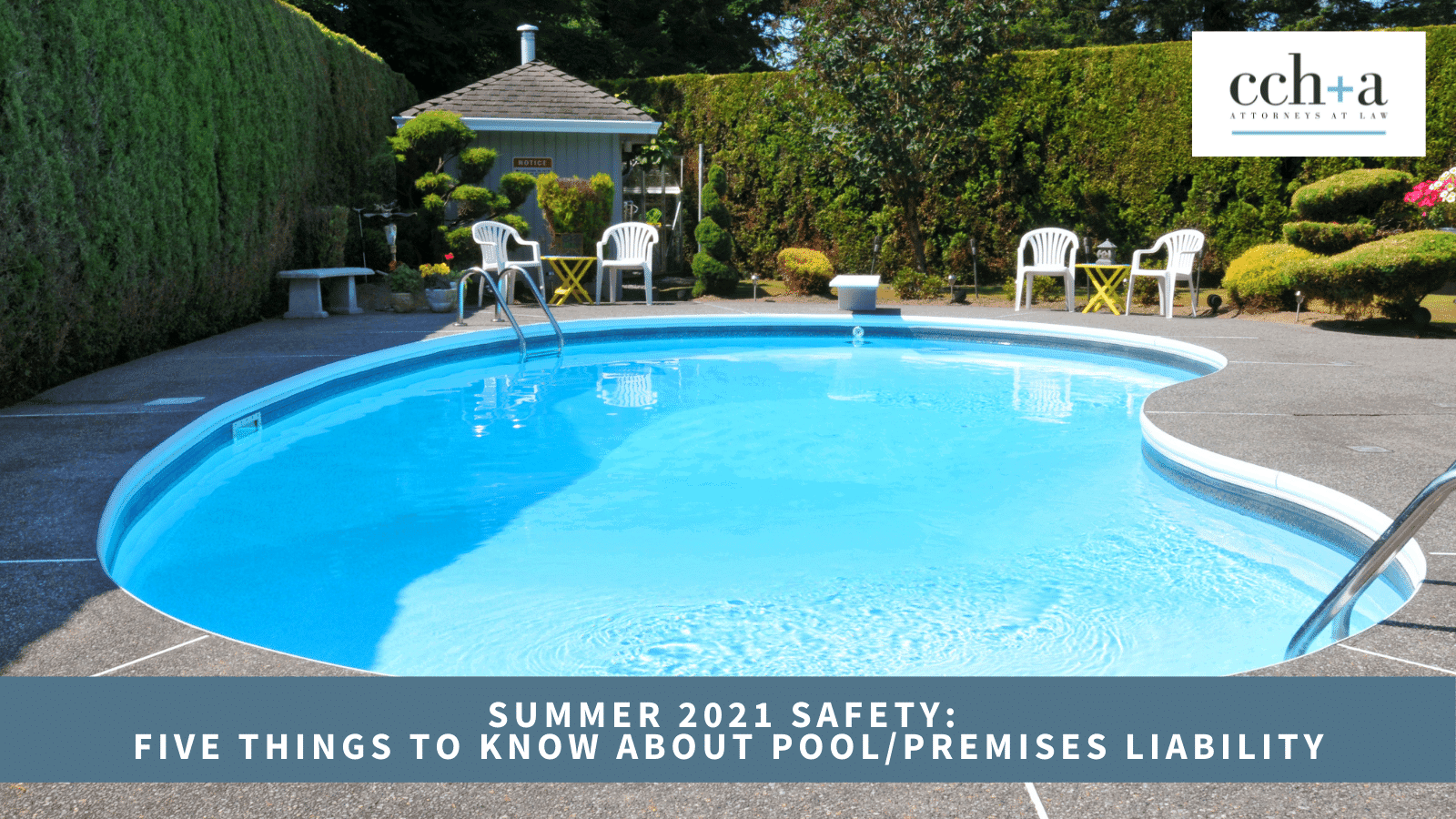Summer 2021 Safety: Five Things to Know about Pool/Premises Liability

Author: Rachel N. Woloshin
POST DATE: 8.9.21

Summer is the perfect time to indulge in friends, family, and outdoor activities like long days by the pool. Unfortunately, swimming pools, like many activities, can pose significant dangers. According to a June 2021 U.S. Consumer Product Safety Commission (CPSC) report, child drownings remain the leading cause of unintentional death among children ages one to four years old. Countless others are left disabled due to near drownings. If you or a loved one are a victim of a pool or premises related injury as a result of someone else’s negligence, it is important you know about Indiana premises liability laws to protect your rights and determine who, if anyone, may be responsible.

1. What is Indiana Premises Liability Law?
Under Indiana law, businesses, homeowners, and landowners could be responsible for a drowning or other premises-related accidents. Generally, landowners must ensure that the properties owned are reasonably free from potential hazards to their guests, customers, and general public that utilize them.
Liability in premises cases depends on the purpose of the visit and the purpose for which the owner has held open the premises. Visitors will generally fall into three categories: (1) invitees, (2) licensees, or (3) trespassers. Determining the owner and visitor’s classification as either an invitee, licensee, or trespasser is fact specific.
- Invitee: An invitee is a person who is invited to enter or to remain on another’s land. An example of an invitee may be someone who uses a public pool. The highest duty of care is owed by a landowner to an invitee; that duty being to exercise reasonable care for the invitee’s protection while he or she is on the premises.
- Licensee: A licensee is a person who enters the land of another for their own convenience, curiosity, or entertainment. Licensees have a privilege to enter or remain on the land by virtue of the landowner’s permission. An example of a licensee may be a social guest using a swimming pool on private property. As to a licensee, the duty is to refrain from willfully or wantonly injuring him or her or acting in a manner to increase his or her peril. This includes the duty to warn a licensee of any non-obvious danger on the premises of which the landowner has knowledge.
- Trespasser: A trespasser does not have permission to be on the land. The duty owed to a trespasser is the duty to merely refrain from wantonly or willfully injuring him or her after discovery of his or her presence. Landowners generally are not responsible to trespassers if they do not know of their presence. However, attractive nuisances, such as swimming pools or trampolines, are one exception. An attractive nuisance is a danger that is likely to attract children who are incapable of appreciating the risk. The landowner is responsible for taking reasonable steps to secure the property and protect a child from the dangerous condition.
2. When are you entitled to personal injury compensation under Indiana Law?
In the state of Indiana, you may be entitled to compensation for injury-related medical bills, lost wages, physical pain, mental suffering, permanent disability, scarring, disfigurement, and other related losses. In order to be entitled to compensation for your damages, you must prove that the landowner had a duty as set forth above, breached that duty, and caused you or your loved one’s injuries.
3. Common injuries in premises liability cases
Among the most common premises liability cases are things like slip, trip and/or fall accidents that happen on public or private property. These accidents have the potential to cause outcomes like spinal cord injuries, traumatic brain injuries, neck, head and/or back injuries, broken bones, and other serious injuries.
In the state of Indiana, injuries are commonly sustained on public or private properties as a result of:
- wet, slippery, or icy floors and surfaces
- uneven or unsound stairs
- uneven or cracked pavement or sidewalks
- inadequate lighting in parking premises and staircases
- floor mats, rugs, or carpets causing tripping hazards
- cluttered hallways or walkways
- falling objects such as limbs or roofing materials
- cuts on sharp edges
4. What are possible defenses by a property owner?
As a personal injury victim, it is very well possible that the property owner may try to dispute liability by making these arguments, amongst others, in their own defense:
- The personal injury victim was trespassing or in an area closed to the public;
- The hazardous area was marked by yellow cones and/or warning signs;
- A “reasonable” individual would have seen the open and obvious danger and avoided the hazard.
5. How liability cases generally resolve
A majority of Indiana premises liability claims are resolved out-of-court prior to any trial. If your case isn’t resolved that way, then a jury will decide if the property owner is responsible for your damages.
If you are injured on another person’s property, CCHA recommends seeking immediate medical attention, if necessary. The statute of limitations for Indiana personal injury cases runs two years from the date of injury or accident. If you want to seek compensation for your damages after that time, or have your case heard in court, then you must file a civil lawsuit within the statute of limitations to preserve your claim.
Contact CCHA with your Personal Injury needs.
Have questions about injuries sustained on someone else’s property? Whether you or someone you love was injured by drowning, slipping, falling, or becoming victim to another type of property negligence, the personal injury attorneys at CCHA can advise you how to best seek damages.

